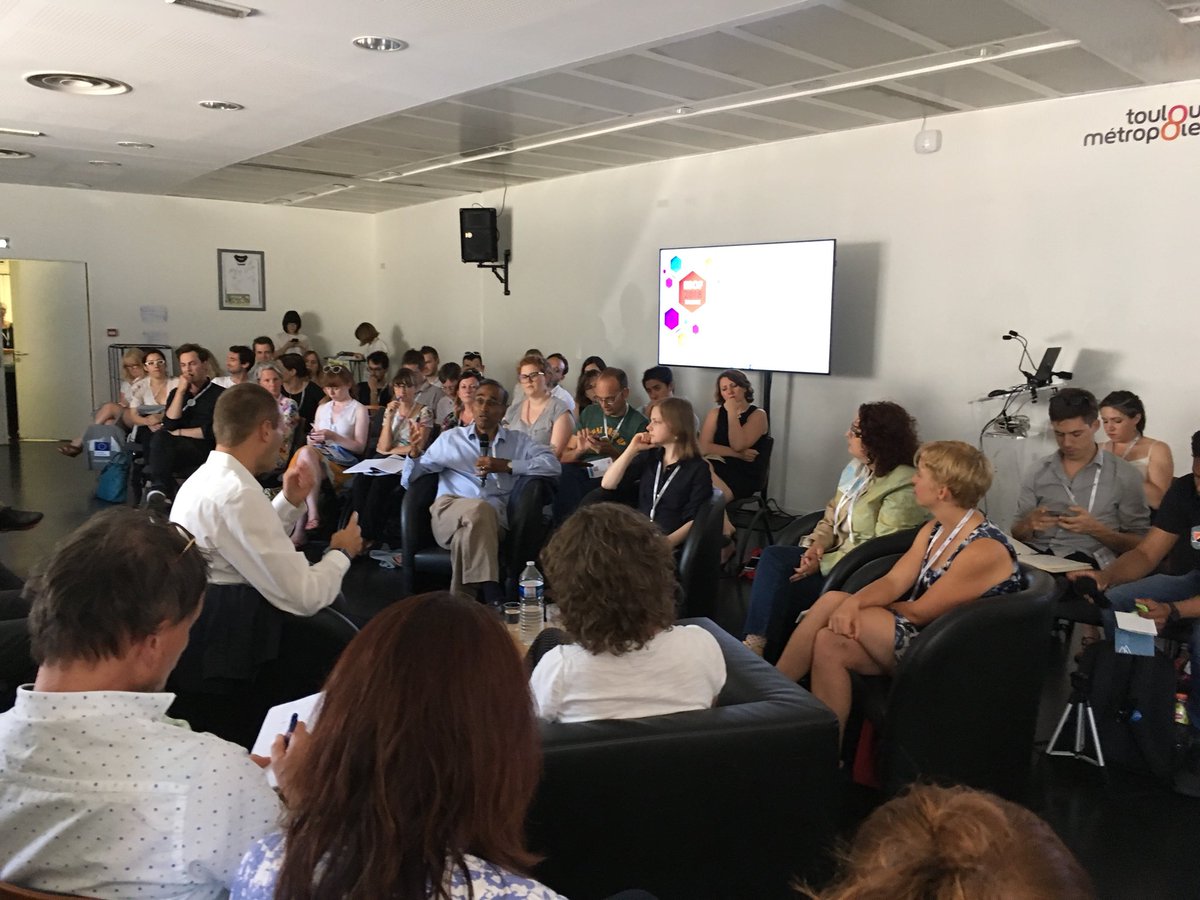#ESOF2018 Bridging the gap between experts and the people: rethinking #scicomm with V Ramakrishnan, @MinuDTizabi, @AlainaGLevine @weitergen... 

One problem we have is this explosion of knowledge, that needs to be curated between true, incertain and not true.
We need to re establish a trust system because it is not anymore scientists->journalists->public
#scicomm
V Ramakrishnan at #ESOF2018
We need to re establish a trust system because it is not anymore scientists->journalists->public
#scicomm
V Ramakrishnan at #ESOF2018
What can we do to make sure we get engaged advocates? We need to make sure we understand our audience
@AlainaGLevine at #ESOF2018
#scicomm
@AlainaGLevine at #ESOF2018
#scicomm
There is a risk for scientists to communicate about topics that they are not specialists in. Because scientists ARE trusted by the public now. We don’t want this trust to be misplaced.
F Gerpott at #esof2018
#scicomm
F Gerpott at #esof2018
#scicomm
About the future of #ScienceJournalism: a concern for @AlainaGLevine because it is disappearing. And we need them.
#ESOF2018
#scicomm
#ESOF2018
#scicomm
V Ramakrishnan, @NobelPrize Laureate : outside of their field of expertise, scientists don’t know much better than any lay person. We should not trust scientists, but the scientific process.
#esof2018
#scicomm
#esof2018
#scicomm
When discussing possible incentives/value for scientists to engage with the public, a lot of scientists in the room (or the most vocal ones) feel that it is not their role to communicate with the public.
#esof2018
#scicomm
#esof2018
#scicomm
Hem, it looks like a lot still has to be done to debunk the #DeficitModel in terms of #scicomm amongst researchers
#esof2018
#esof2018
V Ramakrishnan: #scicomm should not be mandatory for scientists, but it certainly should be valued and not be detrimental for their career. They are funded by taxpayer money.
A lot of debates about whether or not emotions are important in #scicomm, and how they should be used or not manipulated.
I am quite surprised that results from science of #scicomm are not used. This a actually a field of science we are discussing!
#ESOF2018
I am quite surprised that results from science of #scicomm are not used. This a actually a field of science we are discussing!
#ESOF2018
Comment from the public: lots of talks about how scientists communicate, but not much about what information the public is interested in getting.
V Ramakrishnan: we can’t change the fact that flow is mainly unidirectional, scientists are generating knowledge
#esof2018
#scicomm
V Ramakrishnan: we can’t change the fact that flow is mainly unidirectional, scientists are generating knowledge
#esof2018
#scicomm
• • •
Missing some Tweet in this thread? You can try to
force a refresh




